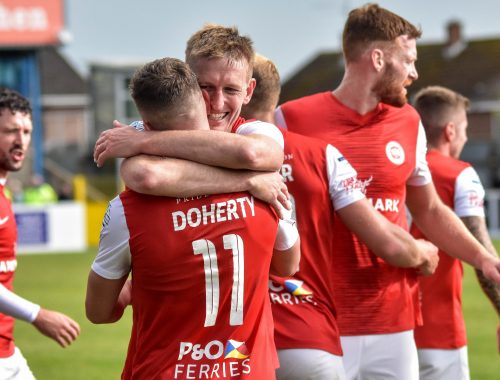
Securing My Placement: The Humbling Experience of Film Industry Rejection
Finding a placement provider to let you work for free to do the tedious everyday tasks no one in the company has the time or inclination to do sounds like a no-brainer, easy mission. However, this was certainly not the case in my experience. The film industry is not easy to break into and now I am starting to understand a bit more just why that is. My journey to find placement, however, ending in success, was a challenging but a learning experience which I believe will largely benefit my success in seeking employment in the future of my career. I will show how I overcame this in reference to The ERA Cycle (Jasper, 2013) of reflective practice. The three stages of the ERA Cycle are Experience, reflection, and Action.

Experience
I began my placement journey this summer as I scoured lists of film and tv production companies in Belfast as well as those provided to me by my module convener. I began to email convincing cover letters and CVs to each company, begging for a chance to be a part of all the action. I heavily researched each of these companies and catered my emails to my specific interests and specialties which I felt fit into their business model and array of media they produced.
I wrote and re-wrote my CV consistently as I applied for placements to fit the mould of what I thought each company would be looking for in a placement student. Previously to this I had written many CVs for various part-time jobs over the years but approaching CV writing for a film student placement I had to unlearn some old ways. This is where I came to my first experience of creating a showreel, a skill which I will work on throughout my entire career. Initially I thought to add every film or project I have worked on but quickly realised some of my earlier projects that I was not entirely proud of might not best show my abilities and subsequently began to narrow down my showreel to what I best saw fit to show my range of abilities and how I have grown as a filmmaker over the years.
After a couple months of sending multiple emails to potential placement providers I hit a bit of a wall as I received many rejection emails from the companies I was the most interested in. After this, I wrote to more and more companies of which still fit my areas of interest of working within film and tv but were not the top of my list of preferences.

After the humbling experience of months of rejection emails, the panic started to set in. I started to realise how long it took some contacts to get back to me, and that is only counting the ones that had not just ignored me. I was running out of patience and decided to try directly calling the companies that hadn’t got back to my emails. Turns out, persistence is key! I finally got through to people who seemed interested in speaking to me. In the space of a couple hours I had obtained two interviews for myself. I had discussed my interest in Irish language film and tv production with Eamonn Devlin from Triplevision Productions and I was getting very excited to work with a team who shared that passion. My interview with him went well and finally a weight was lifted off my shoulders! My placement was secured!
Reflection
To reflect upon this experience, I believe the stress of waiting for emails and ultimately getting nowhere with it led me to learn a lot about how I would contact employers in the future. Dealing with the months of rejection emails, however disheartening at the time, taught me a lot about what not to do in the future and how to deal with this rejection. As Fanthome (2004:28) explains, directly phoning an employer up shows that you have a higher interest and passion to work for a specific company than to just send an email. Phoning a potential employer can be daunting and certainly something i wasn’t used to or very comfortable with but to have this initiative I got a lot further in my search for a placement and I would begin with this technique if I was to repeat this experience. Professionals, especially within the film industry make it clear that they are too busy to prioritise the likes of student placement emails, especially if your outward passion is not strong. In my case I found that I wouldn’t have gotten my placement sorted if I had not called Eamonn up and showed passion for his work and the niche topics they work with in Triplevision.

Action
In the future of my career, I now plan to show more initiative to employers by being more persistent in contacting them. Finding the sweet spot between annoying an employer with relentless emails and phone calls and showing passion and enthusiasm to work with them is vital in this industry. I also aim to plan my time better in the future, making sure I am one the first applicants for a job and strive to be early to jobs will show an employer how much I want the job. As I begin my placement over the next couple of months I aim to keep up with this initiative and passion as I learn more about the work Triplevison does in their company and meet more of the talented people behind their work!
Bibliography
Fanthome, Christine. (2004) Placements: A Survival Guide for Students. Basingstoke: Palgrave Macmillan.
Jasper, M. (2013). Beginning Reflective Practice. Andover: Cengage Learning.
Inside the classroom
Entering The Industry
You May Also Like

Football: A Marketing Tug of War
25 November 2022
Securing a Placement: An Observation in Timing and Luck
25 November 2022
